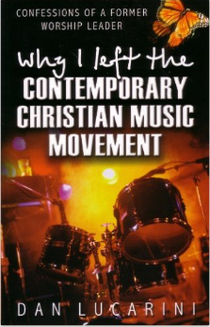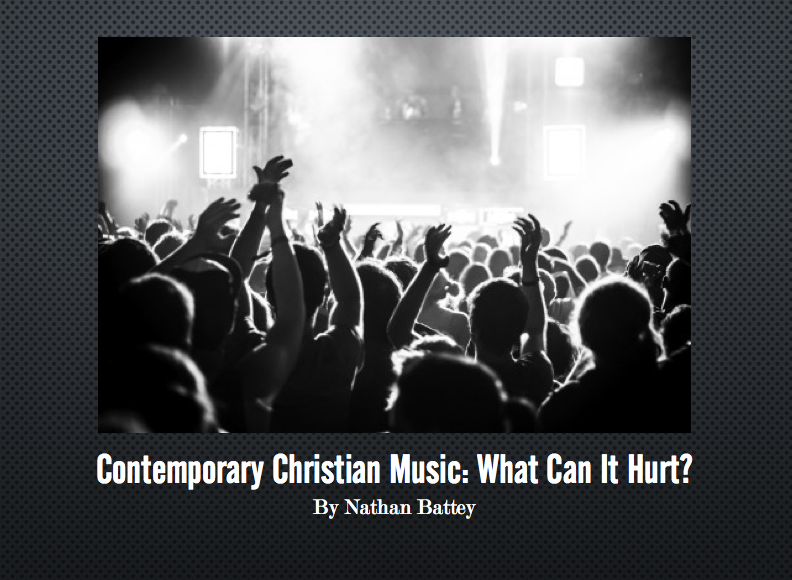Singing praise to God is an act of worship whether inside or outside of a worship service as is indicated through the psalms of David. The difference between the Old Testament’s teaching and the New Testament’s teaching on music is not a distinction between public and private, but rather the authorization of instruments (in the O.T.) and the lack of authorization (in the N.T.) in praise to God.
Paul simply states, “in psalms, hymns, and spiritual songs, singing and making melody in your hearts to the Lord.” When Christians employ psalms, hymns, and spiritual songs, their object must be God (not entertainment) and their only authorization is to sing.
I address this issue again because of an interesting piece I recently found. The denominational writer freely admits psalms, hymns, and spiritual songs are objects of worship to God at all times and warns of the harmful influence and corruption caused my “Contemporary Christian Music” (CCM), or what we would call Contemporary Instrumental Christian Music. I will share a portion of this author’s writings in a moment, but I want to first set the stage by considering an argument used in favor of promoting Contemporary Instrumental Christian Music.
On several occasions I have heard well-meaning Christians argue “I would rather my teenagers listen to Contemporary Christian Music (Christian rock, pop, or rap music) than the worldly trash on the radio. At least the lyrics are clean and teach about good things.”
There are three arguments presented in the preceding statement. The first argument is the old, “Show me in the Bible where it says I can’t!” The basic premise of this argument is that as long as the Bible does not specifically condemn something, we are free to do it. The fallacy of this argument is that it is not based on Scripture (where is the passage that teaches such a biblical hermeneutic?) and ignores passages requiring authorization for our practices such as Colossians 3:17.
The second argument presupposes we must choose between the lesser of two evils. The scenario presented leaves Christian teens with two choices only: CCM and trashy, worldly music. Are teens not free to reject both? A rejection of secular evils does not demand a compromise of spiritual purity.
Third, the argument asserts that positive change can be accomplished through the use of Contemporary Christian Music. It is this point that stuck out in my mind as I read “Why I Left The Contemporary Christian Music Movement” by Dan Lucarini. Consider the following analysis as it comes from a man highly involved in promoting and popularizing Contemporary Christian Music:

By promoting Contemporary Christian Music we are teaching our children to love something God never sanctioned and are encouraging them to go down a path that will lead them away from the church. I know many will reject the idea that CCM can lead teens away from the church, but I have seen it happen within my own generation.
A friend of mine, with whom I grew up in the church, became heavily involved in CCM. I remember the first time I heard a recording of him and his brothers playing a heavy metal version of “Amazing Grace”. I was both confused and disturbed, but no one else seemed to be. Today my friend is a leader in a non-denominational praise and worship band. Though there were other factors that undoubtedly lead to his departure from the church, CCM and all that it entails was a major contributor.
Please take time to reconsider the New Testament’s teaching on praising God in psalm and the affects its neglect will have on the Kingdom.


 RSS Feed
RSS Feed
